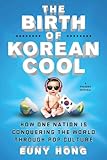Matt Pickles “K-pop drives boom in Korean language lessons” https://www.bbc.com/news/business-44770777
「Gangnam Style*1のようなK-Popの歌詞を覚えたいという欲望」が韓国語学習ブームを世界的に惹き起こしているという話。
米国の大学における韓国語履修者は2013年から2016年の間に14%増加している。現在米国では1万4000人の学生が韓国語を学んでいるが、20年前は163人だった。
カナダでの話;
中東でも;
Professor Andre Schmid*2 has seen a rapid rise at the University of Toronto, where he researches Korean history.When the university introduced a Korean class ten years ago, it had 30 students. Today it has 150 and an even longer waiting list.
It has seen similar increases in the numbers studying Korean history.
Prof Schmid says this has been driven by the popularity of Korean pop music and drama, and notes that the internet has brought the K-pop craze to the most unexpected places.
"Among my students I have a young woman who grew up in an isolated farm house in Grey County Ontario, but she chose the University of Toronto because she wanted to learn all about Korea," says Prof Schmid.
"That would never have happened 15 years ago. The phenomenon is enabled by the rise of YouTube, such that someone like her can have access to these cultural products in such remote places," he says.
ポップ・カルチャーをフックにして韓国理解を拡げようとする韓国政府の取組み;
It has become so widespread that a UN aid agency uses K-pop as a conversation starter in a project which connects young refugees from the Middle East with western students over Skype.The Korean language is even starting to change the way foreign K-pop fans speak.
A survey of K-pop followers in Algeria found that most had started using Korean words and phrases in their daily conversation.
しかし、韓国語は難しい。米国国務省は韓国語を英語ネイティヴにとっての最難関言語のひとつとしている。
The South Korean government is capitalising on its cultural assets by setting up 130 language institutes in 50 countries.Last year, the government funded a new Institute for Korean Studies at George Washington University in the US*3.
"This type of centre may attract people who are interested in Korea because of pop culture at first, but they can also expose those students to other parts of Korean studies, including politics, trade, history, and more," says Jenna Gibson of the US-based think tank the Korea Economic Institute*4.
本文では「英語を教えている」とあるけれど、写真のキャプションによれば、Ji Hyun Parkさんが教えているのは「韓国語(朝鮮語)」。ここで朴さんが挙げている韓国語の難しさの例は敬語問題。これは日本語でも共通。日本語の場合、謙譲語があるので、さらに複雑ということだろうか。また、K-Popの歌詞は韓国語と英語が混ざっているので学習者を混乱させるというのは、J-Popの歌詞も同じ。
Ji Hyun Park fled North Korea and now lives in Manchester in the UK, where she teaches English for the tutoring service Chatterbox."Different languages are used to speak to adults and children - words like "hello" and "goodnight" are different depending on whether you are speaking to a child or an adult," she says.
She says pronunciation is particularly difficult for English speakers, and that the lyrics sung by K-pop stars can confuse learners because they mix Korean and English together.
Ji Hyun has noticed an increase in the popularity of Korean culture in the UK.
"When Gangnam Style was popular, my son was a teenager in high school and told me that his friends were all singing it even though they didn't understand what the words meant," she said.
さて、The Birth of Korean Cool*5の著者Euny Hongさんは、1970年代から80年代前半にかけて、子ども時代を米国シカゴ郊外で過ごしたが、いつも「日本人め(Jap)」といじめられていた。また、「お前中国人か?」と聞かれると、いつもYesと答えていて、母親にそれを聞かれると、自分は韓国人だと何故ちゃんといわなかったのかと怒られていた。韓国人だというと、嘘をつくな、韓国なんて国は存在しない、といじめられたという(pp.1-2)。そのような時代もあったわけだ。

The Birth of Korean Cool: How One Nation Is Conquering the World Through Pop Culture
- 作者: Euny Hong
- 出版社/メーカー: Picador USA
- 発売日: 2014/08/05
- メディア: ペーパーバック
- この商品を含むブログ (3件) を見る
*1:See also http://d.hatena.ne.jp/sumita-m/20130424/1366781245
*2:See eg. http://www.eas.utoronto.ca/people/faculty-members/andre-schmid/ https://en.wikipedia.org/wiki/Andre_Schmid_(academic)
*3:https://gwiks.elliott.gwu.edu/ See “University Launches Institute for Korean Studies” https://gwtoday.gwu.edu/university-launches-institute-korean-studies
*4:http://keia.org/staffmember/jenna-gibson
*5:Mentioned in http://d.hatena.ne.jp/sumita-m/20161110/1478747787